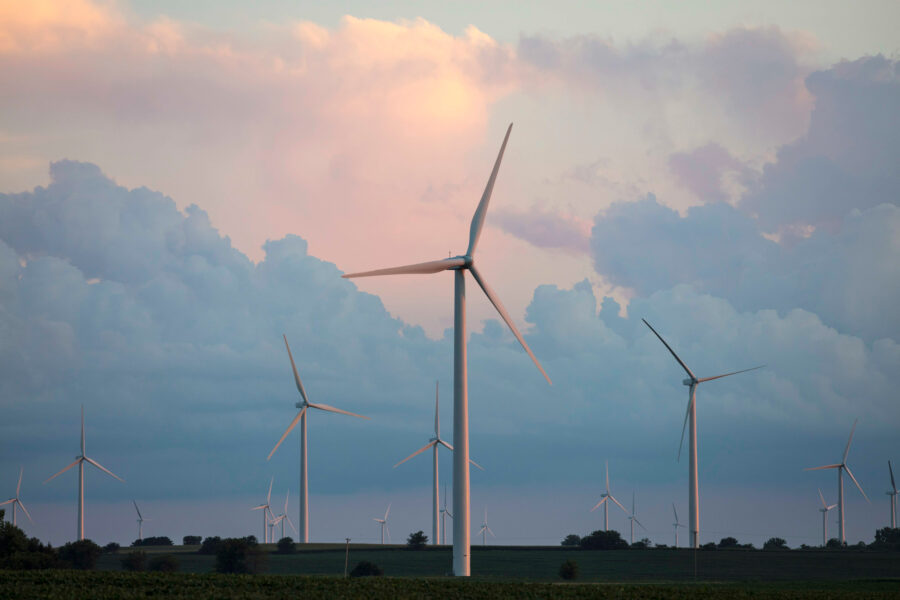The probe of ExxonMobil by the New York Attorney General’s Office is widening. Investigators have taken depositions of company executives and issued additional subpoenas to determine whether the company may have destroyed evidence connected to an alias email used by former Exxon CEO Rex Tillerson.
The disclosure was made Friday in arguments filed by New York Attorney General Eric Schneiderman in a Manhattan federal court. He is seeking dismissal of a request by Exxon for an injunction that would halt his investigation into the oil giant involving whether it misled shareholders and the public about the risks of climate change.
Attorneys for Schneiderman did not elaborate in the 25-page document on the scope of the expanded investigation other than to suggest that it involved the recent disclosure that Tillerson, now U.S. secretary of state, used an email alias when discussing issues including climate change and the risk that it posed to the company.
New York and Massachusetts investigators denounced the company’s attempt in federal court to derail their parallel inquiries as a vexatious legal tactic that has no chance of succeeding.
“So far, this federal action’s primary purpose has been to investigate the NYOAG’s Investigation,” the New York brief states.
The filings by Schneiderman and Massachusetts Attorney General Maura Healey represent the first round in a series of legal jousts expected over the course of the summer before U.S. District Court Judge Valerie Caproni.
The two attorneys general argued that the proper venue for Exxon to fight the investigations, which are based on each state’s fraud statutes, are in the respective state courts. Having a federal court intervene could mean that states might lose their autonomy in future investigations. “If this action proceeds, even to discovery, federal judges regularly could be called upon to determine when a recipient of a document subpoena may learn details of, or even halt, the state investigation that generated the subpoena,” according to the New York brief.
Healey’s office echoed that position in its brief.
The disclosure by Schneiderman’s office of a widening investigation focused on the possible destruction of evidence that heightened the stakes.
“In this ongoing investigation, the NYOAG has served additional subpoenas upon Exxon,” according to the New York brief. “For example, because of concern about spoliation of documents, and in conformance with proceedings before the New York court on that issue, the NYOAG has taken, pursuant to subpoena, testimony of witnesses who may possess information relevant to spoliation.”
The expanded investigation comes after Exxon conceded that it failed to preserve all documents from Tillerson’s shadow email account, under the alias Wayne Tracker, and has failed to turn over other documents from top executives. New York investigators said in the brief that “no preservation hold was placed on Wayne Tracker” emails by Exxon, a process meant to insure they were not destroyed.
“We have and will continue to use all of the tools at our disposal to get to the bottom of these issues and to further our investigation,” said Amy Spitalnick, Schneiderman’s press secretary.
An Exxon spokesman did not respond to a request for comment. Exxon has until June 16 to formally respond in court.
Schneiderman’s office disclosed the existence of Tillerson’s alternate email as part of an open investigation of Exxon that began in November 2015 in connection with possible securities fraud over whether the company misled shareholders and the public about climate change.
Tillerson used the Wayne Tracker email account for eight years to discuss, among other things, climate change-related issues and the risks they posed to the company’s business, investigators claim.
The company turned over a handful of the emails in January and at that time said the emails had been overlooked because the company did not have the technical capability to identify them.
Exxon later said it could account for all but a one-month period of emails from Tillerson’s alternate email account, from September to November 2014, according to a letter to a New York state court judge.
The case landed in Caproni’s courtroom in March after a federal judge in Texas determined Exxon’s challenge to the investigations was best settled in New York.
While Exxon enjoyed a series of favorable rulings in Texas, Caproni has signaled she is skeptical of Exxon’s arguments to put a stop to climate fraud investigations by the attorneys general of New York and Massachusetts.
Investigations launched by the two attorneys general provoked Exxon to file a lawsuit seeking an injunction to derail the probes. The investigations focus on whether past statements by Exxon questioning climate change science and downplaying climate change risks to the company constituted a form of fraud against the public and its shareholders.
Exxon argued that the investigations were politically motivated and intended to silence the company and any others who did not share the same views of climate change as the two attorneys general. The company has indicated that it will repeat that argument in Caproni’s court.













